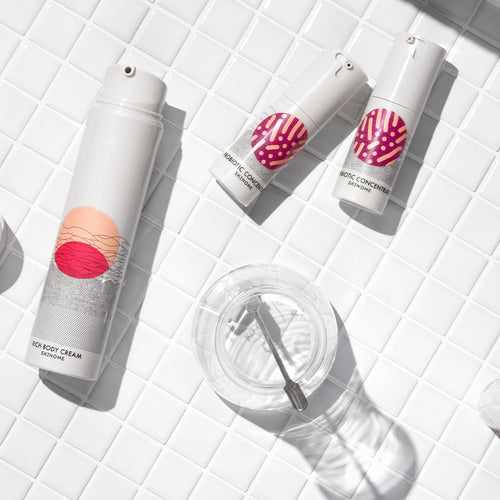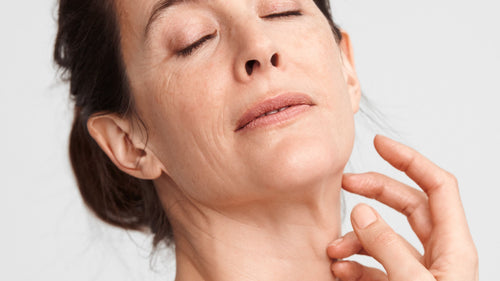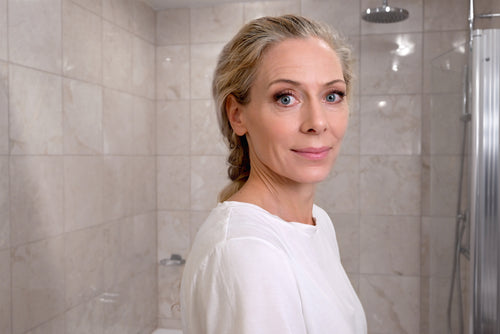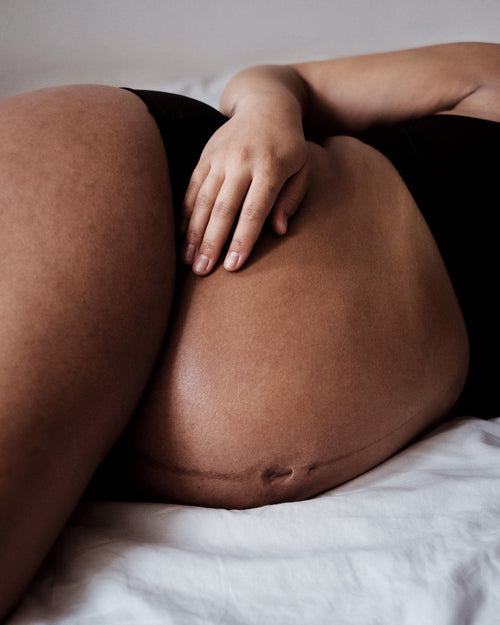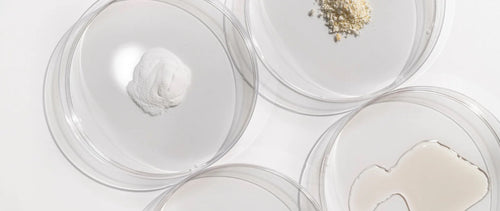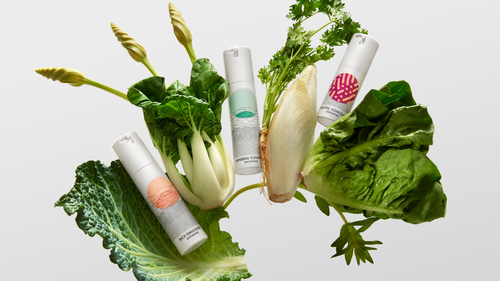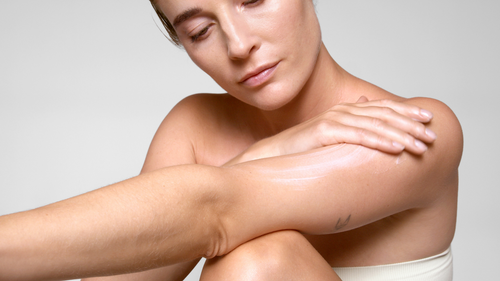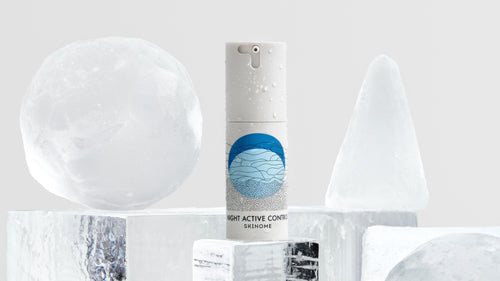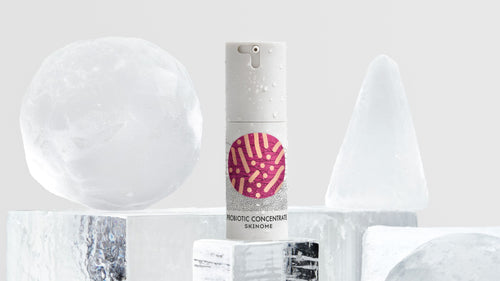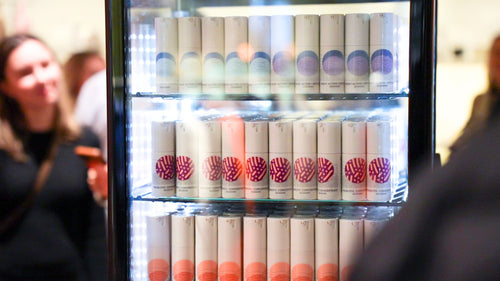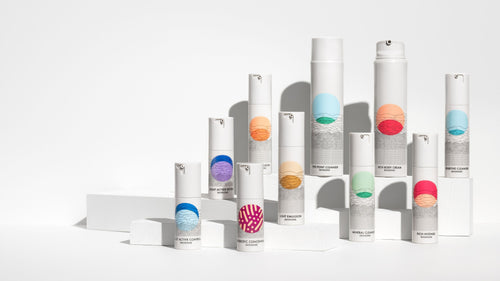Cleansing and exfoliating are at least as important as moisturizing — but moderation is key in cold weather.
Annoyed? Sensitive? Confused? Maybe even a little scaly? Now I'm not talking about different moods linked to the pandemic shutdowns, but about winter-ravaged faces. When it comes to dealing with a winter gray and dull skin it can be tempting to use layer upon layer of products but a buzzword we will see more of in beauty in 2021 is "skinimalism" which essentially means reducing the number of products in both the bathroom cabinet as the make-up bag.
London-based dermatologist Dr. Sam Bunting has noticed that “lockdown has led to an intense interest in skin care, but I have seen many people overusing active ingredients or simply using too many in rotation at once, leading to irritated and confused skin. I strongly believe that less is more”.
Even Johanna Gillbro, author of the enlightening book Hudbibeln which explains the function and ingredients of the skin and founder of the skin care brand Skinome (supplied to the UK from April), knows both the one and the other about skin in cold climates. She says that "people have to try what works best for them, but I would like to introduce a Swedish word called lagom which means that we should neither do too much nor too little of anything"
We like to fixate on moisturizer being the holy grail of hydration but the truth is that cleansing and exfoliation are just as important and not disrupting the skin barrier, the outermost layer of the epidermis. She urges people to cleanse gently – this is the single most important tip for taking care of dry winter skin. Do not clean with hot water, but use lukewarm water instead and gently pat the skin dry without rubbing it. Avoid foaming and perfumed cleaning and skip double cleaning. "I like Elemis's new Pro-Collagen Naked Cleansing Balm because it is perfume-free, which is good as cleansing towels are often ruined by too strong perfumes, and Bioderma Sensibio H2O Micellar Water, which has long been a staple in make-up artists' kits backstage during fashion weeks".
Gillbro adds that scientists are increasingly looking at the skin's microbiome, which is made up of bacteria, fungi and viruses, and cautions against overcleansing because some of these microorganisms have benefits for the skin. She also recommends that people with normal to dry and sensitive skin skip cleansing—and even rinse with water if they want—in the morning. Maybe this appeals to my inner slob, but I've started splashing my face with water when I wake up, then moisturizing, and my skin feels calmer and less like Leonardo DiCaprio's wind-chilled, bearded face in The Revenant.
If you find a product that your skin reacts to – or dislikes – it's worth analyzing the ingredients to apply this knowledge to future purchases (for example, many sulfates often found in face washes are drying and my skin loves glycerin) rather than to absorb only soothing words about star ingredients. This can reduce the expensive trial and error that building a routine can involve.
Exfoliation should also be done carefully so as not to disturb the skin barrier. Noelly Michoux, founder of skincare brand 4.5.6, which is designed for melanin-rich (darker) skin says “exfoliation is important to avoid an ashy look. But over-exfoliation can create inflammation and when melanin-rich skin feels aggression, it can cause melanocytes to overproduce melanin, causing hyperpigmentation.” 4.5.6 uses a combination of a low percentage of chemical peeling and enzymatic peeling for best effect and tolerability.”
When choosing a moisturizer, Dr. Sam Bunting “A cream format containing a blend of occlusive ingredients to trap water in the skin and barrier repairing ingredients to replenish ceramides. Look for ingredients like shea butter, squalane and niacinamide. Good options include CeraVe Moisturizing Cream (£13, boots.com) and Dr Sam's Flawless Moisturizer (£25, drsambunting.com).”
What about toners, serums and other products? With the bathroom shelfie – an image of a bathroom shelf groaning with coordinated packaging still popping up on Instagram, it can be hard for beauty product lovers to go against the grain. Dr. Barbara Sturm, founder of the eponymous skincare and spa line favored by Kim Kardashian and Gwyneth Paltrow, believes a routine can be cut down to four or five steps. (In the beauty world, this counts as shrinking.)
Also for cleansing and moisturizing, she advocates using a toner with the same pH value as the skin "to balance and strengthen the skin barrier and keep it hydrated". She explains that "[Covid-19] masks disrupt our skin barrier. We get sensitivity, skin redness, breaks in the skin and pimples. I started using my balanced toner religiously (£45 drsturm.com) because it helps with the mask”. She also recommends a serum with hyaluronic acid as a good moisturizing tool before applying a richer cream with oils in it.
I love her (admittedly quite expensive) Face Cream, (£135, en.drsturm.com), which is soothing and plumping, Aurelia Cell Revitalize Night Moisturizer (£32, aureliaskincare.com) and Balmond's Daily Moisturizing Cream (£14, balminds.co.uk), which is good for sensitive skin. When it comes to SPF, Dr. Sam Bunting that you use sun protection factor regardless of the weather, as "UVA levels exist throughout the year". Beauty Pie Super Healthy Skin Ultralight UVA/UVB SPF 25 (£35, beautypie.com) leaves no white film and gives a little shine.
Beyond products, other hacks include turning down your central heating and the temperature of your shower, and – if you're really serious – getting a humidifier. Sturm suggests “Skip the junk food, put milk in the tub, get enough sleep, try to relax from the news, meditate, read a good book. Getting your cortisol levels down really helps with your skin.
Last but not least, if you're wearing makeup, a hydrating base won't draw attention to skin dryness; I've discovered the amazing Dior Forever Skin Glow foundation (£39, dior.com). Imagine Elsa from Frozen after a facial.
